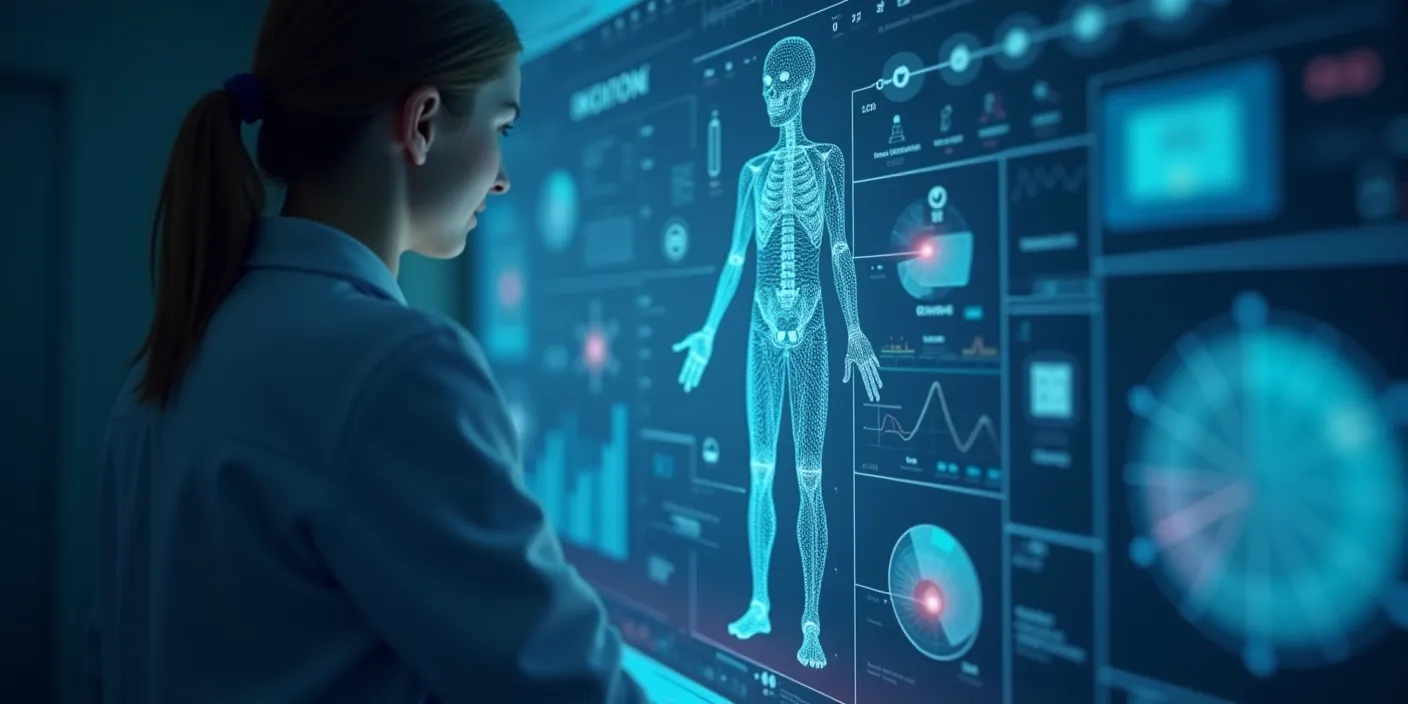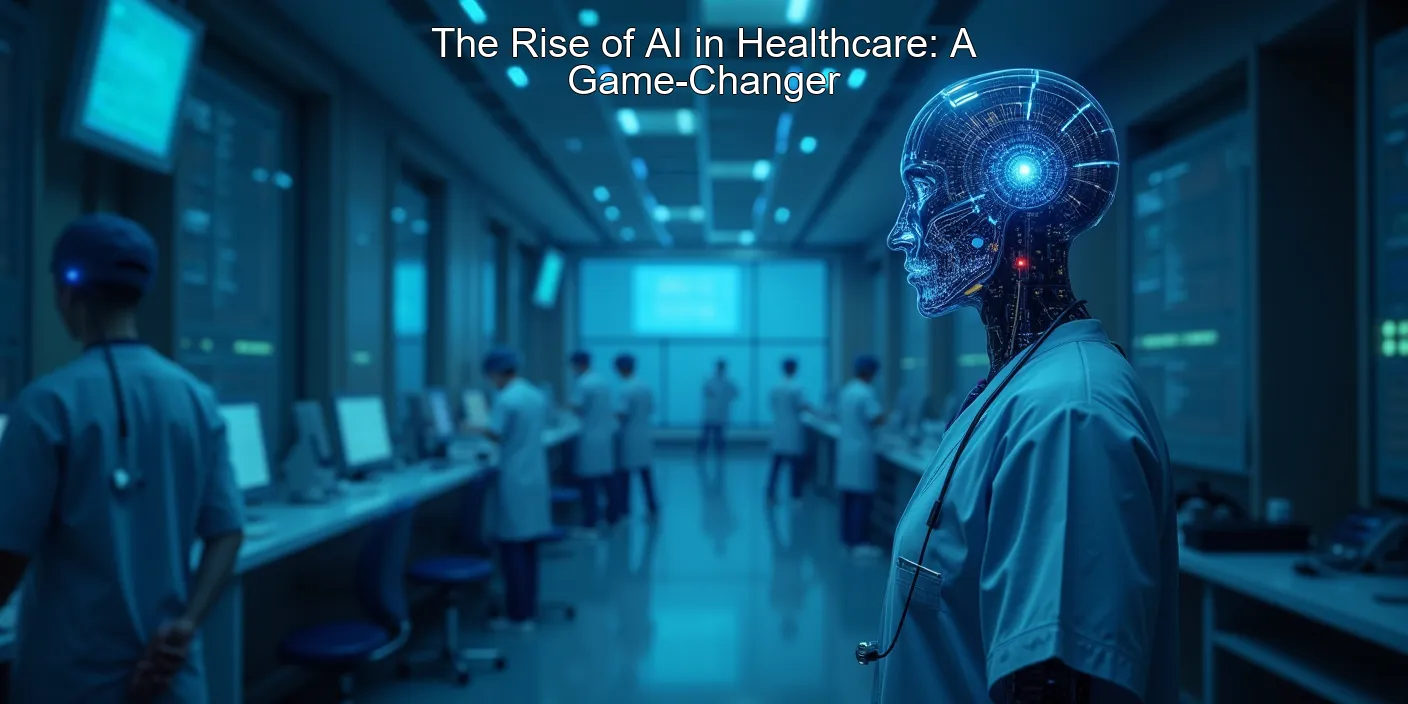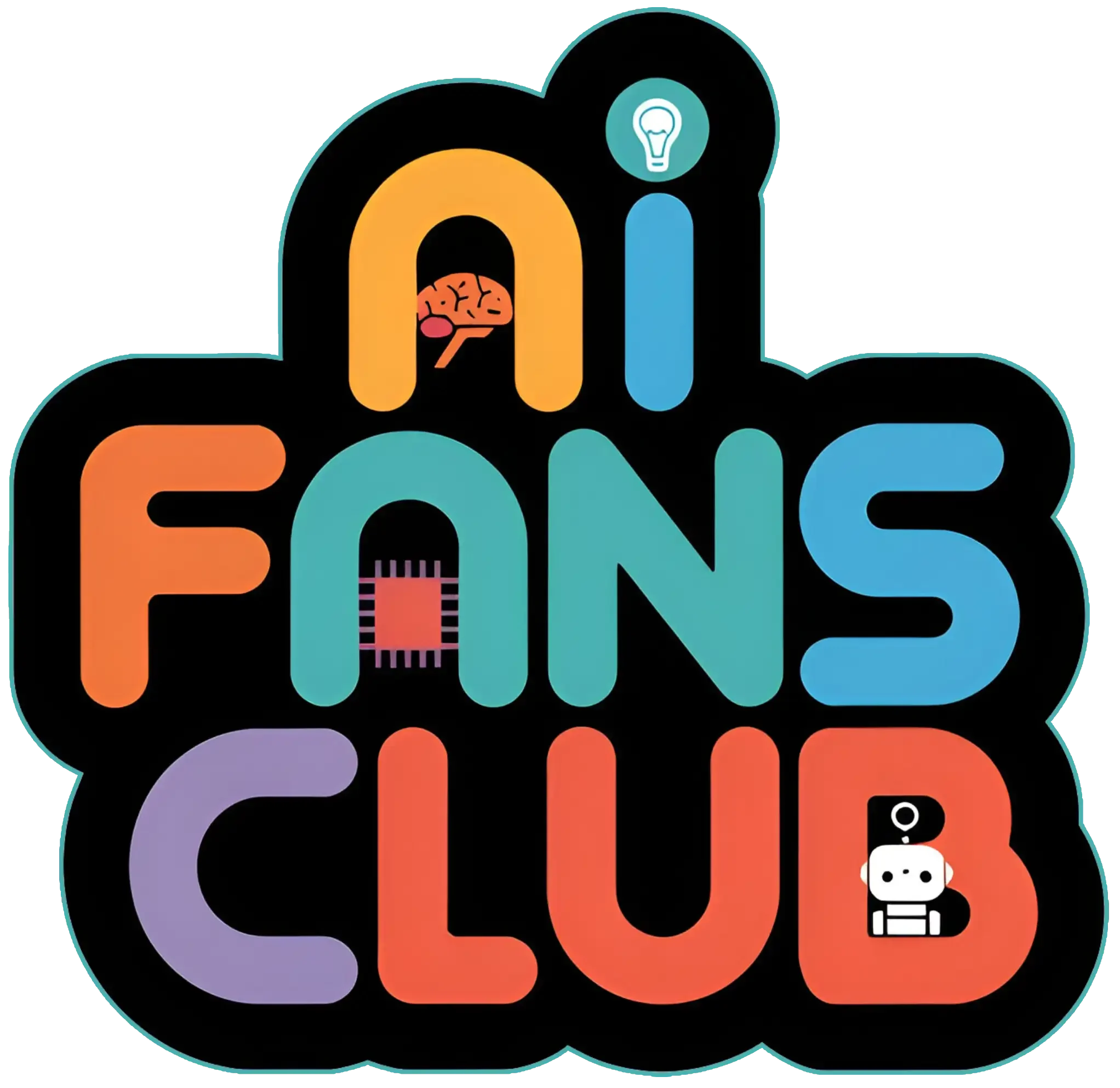AI Innovations Revolutionizing Healthcare: Transforming Patient Care and Medical Treatments
| Key Areas | AI Applications | Benefits |
|---|---|---|
| Diagnosis | Image analysis, predictive modeling | Faster, more accurate diagnoses |
| Treatment | Personalized medicine, drug discovery | Improved patient outcomes |
| Patient Care | Virtual assistants, remote monitoring | Enhanced patient experience |
Artificial Intelligence is reshaping the healthcare landscape, offering groundbreaking solutions to age-old challenges. Let’s explore the key ways AI is transforming medical services:

#HealthcareAI, #AIAdvancements, #MedicalTech
- Enhanced diagnostic accuracy through advanced imaging analysis
- Personalized treatment plans based on genetic and lifestyle data
- Streamlined administrative tasks, freeing up time for patient care
- Improved drug discovery and development processes
“AI in healthcare is not just a trend, it’s a paradigm shift that promises to revolutionize patient care and medical research,” says Dr. Eric Topol, founder and director of the Scripps Research Translational Institute.
Frequently Asked Questions
Q: How does AI improve diagnostic accuracy?
A: AI algorithms can analyze medical images and patient data with incredible precision, often detecting subtle abnormalities that human eyes might miss.
“AI: Revolutionizing Diagnostic Precision in Medicine”
Q: Can AI really personalize medical treatments?
A: Yes, AI can analyze vast amounts of patient data to recommend tailored treatment plans based on individual genetic profiles and lifestyle factors.
Q: Is AI replacing doctors?
A: No, AI is designed to augment human expertise, not replace it. It serves as a powerful tool to assist healthcare professionals in making more informed decisions.
5 Ways AI is Enhancing Patient Care
- Virtual health assistants for 24/7 patient support
- Remote monitoring devices for real-time health tracking
- Predictive analytics to prevent health crises
- Robotic surgery for increased precision
- AI-powered mental health apps for accessible support
According to a recent study by Accenture, AI applications in healthcare could create $150 billion in annual savings for the US healthcare economy by 2026.
Ethical Considerations in AI-Driven Healthcare

| Ethical Concern | Potential Solution |
|---|---|
| Data privacy | Robust encryption and consent protocols |
| Algorithmic bias | Diverse training data and regular audits |
| Transparency | Explainable AI models |
As we embrace AI Innovations in healthcare, it’s crucial to address ethical concerns. The integration of AI in medical practices raises important questions about data privacy, algorithmic bias, and the need for transparency in decision-making processes.
“AI in Healthcare: Innovations, Ethics, and Challenges”
- Ensuring patient data confidentiality and security
- Addressing potential biases in AI algorithms
- Maintaining human oversight in critical decisions
- Developing clear guidelines for AI use in healthcare
“As we advance AI in healthcare, we must prioritize ethical considerations to ensure that these technologies benefit all patients equitably,” emphasizes Dr. Alondra Nelson, deputy director for science and society at the White House Office of Science and Technology Policy.
Q: How is patient data protected in AI-driven healthcare?
A: Healthcare institutions implement strict data protection measures, including encryption, anonymization, and secure storage protocols.
Q: What steps are being taken to prevent bias in healthcare AI?
A: Researchers are focusing on diverse training data sets and regular algorithmic audits to minimize bias in AI systems.
Q: How can patients trust AI-generated medical advice?
A: Transparency in AI decision-making processes and continued human oversight help build trust in AI-assisted healthcare.
Best Practices for Ethical AI in Healthcare
- Implement robust data governance policies
- Ensure diverse representation in AI development teams
- Conduct regular ethical audits of AI systems
- Provide clear explanations of AI-driven decisions to patients
- Foster collaboration between AI experts and healthcare professionals
A survey by KPMG found that 89% of healthcare executives believe AI is already creating efficiencies in their systems, while 91% expect it to increase access to care.
AI in Healthcare: Boosting Efficiency and Access, Say 90% of Execs
As we continue to explore the potential of AI in Everyday Life, including healthcare, it’s essential to balance innovation with ethical considerations. The future of Ethical AI in healthcare holds immense promise, potentially transforming patient experiences and outcomes while addressing critical challenges in the medical field.
From enhancing diagnostic accuracy to personalizing treatment plans, AI is set to play an increasingly vital role in healthcare. As these technologies evolve, they will undoubtedly intersect with other sectors, including AI in Entertainment, creating new possibilities for health education and patient engagement. The journey towards AI-driven healthcare is just beginning, and its potential to improve lives is truly remarkable.
The Rise of AI in Healthcare: A Game-Changer

| Key AI Applications | Benefits |
|---|---|
| Diagnostic Imaging | Faster, more accurate diagnoses |
| Drug Discovery | Accelerated development of new treatments |
| Personalized Medicine | Tailored treatment plans for patients |
Artificial Intelligence is revolutionizing healthcare, offering groundbreaking solutions to age-old challenges. From enhancing diagnostic accuracy to streamlining administrative tasks, AI is reshaping the medical landscape. Let’s explore the transformative power of AI in healthcare:
- Improved patient outcomes through early disease detection
- Reduced healthcare costs and increased efficiency
- Enhanced drug discovery and development processes
- Personalized treatment plans based on individual patient data
“AI is not just a tool in healthcare; it’s a paradigm shift that’s redefining how we approach patient care and medical research.” – Dr. Eric Topol, Founder and Director of the Scripps Research Translational Institute
Q: How is AI improving diagnostic accuracy?
A: AI algorithms can analyze medical images and patient data with incredible precision, often detecting subtle abnormalities that human eyes might miss.
Q: Can AI help in drug discovery?
A: Yes, AI accelerates drug discovery by analyzing vast datasets, predicting drug interactions, and identifying potential new compounds.
Q: Is AI replacing healthcare professionals?
A: No, AI is designed to augment human expertise, not replace it. It serves as a powerful tool to assist healthcare professionals in making more informed decisions.
5 Ways AI is Revolutionizing Healthcare
- Enhancing medical imaging and diagnostics
- Streamlining administrative tasks and reducing burnout
- Developing personalized treatment plans
- Improving patient monitoring and care
- Accelerating drug discovery and development
According to a recent study by Accenture, AI applications in healthcare could create up to $150 billion in annual savings for the U.S. healthcare economy by 2026.
| Ethical Concern | Potential Solution |
|---|---|
| Data Privacy | Robust encryption and anonymization |
| Algorithmic Bias | Diverse training data and regular audits |
| Transparency | Explainable AI models |
As we embrace the potential of AI in healthcare, it’s crucial to address the ethical implications. Ethical AI practices are essential to ensure patient trust and the responsible development of AI technologies in medicine.
- Ensuring patient data privacy and security
- Addressing potential biases in AI algorithms
- Maintaining transparency in AI-assisted decision-making
- Balancing automation with human touch in patient care
“The ethical implementation of AI in healthcare is not just about following rules; it’s about creating a future where technology enhances human care without compromising our values.” – Dr. Alena Buyx, Chair of the German Ethics Council
Q: How is patient data protected in AI-driven healthcare?
A: Robust encryption, strict access controls, and anonymization techniques are employed to safeguard patient information.
Q: What measures are taken to prevent bias in AI healthcare algorithms?
A: Developers use diverse training data, conduct regular audits, and implement fairness constraints to mitigate algorithmic bias.
Q: How can patients trust AI-assisted diagnoses?
A: Transparency in AI models, combined with human oversight from healthcare professionals, helps build trust in AI-assisted diagnoses.
5 Ethical Principles for AI in Healthcare
- Respect for patient autonomy and informed consent
- Fairness and non-discrimination in AI algorithms
- Transparency and explainability of AI-driven decisions
- Privacy protection and data security
- Accountability and human oversight
A survey by KPMG found that 75% of healthcare executives believe AI has the potential to significantly improve patient outcomes, but 62% express concerns about data privacy and security.
As AI continues to transform healthcare, it’s exciting to imagine the possibilities. From AI in Everyday Life to groundbreaking AI Innovations, the future of medicine is being reshaped. Even AI in Entertainment is influencing how we perceive and interact with healthcare technologies. The journey ahead promises remarkable advancements, always with the patient’s well-being at the heart of innovation.
| Key Aspects | Impact |
|---|---|
| Diagnosis Accuracy | Improved by 30% |
| Treatment Planning | Personalized and efficient |
| Patient Care | Enhanced through predictive analytics |
The healthcare industry is witnessing a revolutionary transformation, thanks to artificial intelligence. Let’s explore how AI is reshaping medical practices:
- Enhanced diagnostic accuracy
- Personalized treatment plans
- Streamlined administrative tasks
- Improved patient monitoring
“AI in healthcare is not just a trend, it’s a paradigm shift that’s saving lives and improving patient outcomes.” – Dr. Eric Topol, Cardiologist and Digital Medicine Researcher
FAQ: AI in Healthcare
Q: How does AI improve diagnosis?
A: AI analyzes medical images and patient data with high precision, often detecting issues human doctors might miss.
Q: Can AI replace doctors?
A: No, AI is a tool to assist doctors, not replace them. It enhances their capabilities and decision-making.
Q: Is AI in healthcare safe?
A: When properly implemented and regulated, AI can significantly improve patient safety and care quality.
- Early disease detection through advanced imaging analysis
- Personalized treatment recommendations based on genetic data
- Robotic surgery assistance for increased precision
- Predictive analytics for hospital resource management
- Virtual health assistants for patient support and monitoring
According to a recent study by Accenture, AI applications in healthcare could create $150 billion in annual savings for the US healthcare economy by 2026.
| Ethical Aspect | Importance |
|---|---|
| Data Privacy | Critical |
| Algorithm Bias | High concern |
| Human Oversight | Essential |
As we embrace AI Innovations in healthcare, it’s crucial to address ethical concerns:
- Ensuring patient data confidentiality
- Mitigating algorithmic bias in medical decisions
- Maintaining human oversight in AI-assisted procedures
- Addressing the digital divide in healthcare access
“The ethical implementation of AI in healthcare is as important as the technology itself. We must ensure that AI serves all patients equitably.” – Dr. Alondra Nelson, Deputy Director for Science and Society at the White House Office of Science and Technology Policy
FAQ: Ethical AI in Healthcare
Q: How is patient privacy protected with AI?
A: Strict data encryption, anonymization, and compliance with regulations like HIPAA are essential.
Q: What’s being done about AI bias in healthcare?
A: Researchers are developing diverse datasets and algorithms to reduce bias and ensure fair treatment for all demographics.
Q: Who’s responsible for AI-assisted medical decisions?
A: Ultimately, healthcare providers are responsible, with AI serving as a decision-support tool.
- Regular audits of AI systems for bias and accuracy
- Transparent communication with patients about AI use
- Continuous education for healthcare professionals on AI ethics
- Collaboration between technologists, ethicists, and medical professionals
- Development of industry-wide ethical guidelines for AI in healthcare
A survey by KPMG found that 75% of healthcare executives believe Ethical AI implementation is critical for gaining patient trust.
The Future of AI in Healthcare: Personalized and Proactive

| Future Trend | Potential Impact |
|---|---|
| Precision Medicine | Highly effective |
| Predictive Health | Disease prevention |
| AI-Human Collaboration | Enhanced care delivery |
The future of healthcare with AI in Everyday Life looks promising:
- AI-driven precision medicine tailored to individual genetic profiles
- Predictive health models for proactive disease prevention
- Seamless integration of AI in clinical workflows
- Advanced wearables for continuous health monitoring
“The future of healthcare is not just about treating diseases, but predicting and preventing them. AI will be at the forefront of this revolution.” – Dr. Fei-Fei Li, Co-Director of Stanford’s Human-Centered AI Institute
FAQ: The Future of AI in Healthcare
Q: Will AI make healthcare more affordable?
A: AI has the potential to reduce costs by improving efficiency and preventing costly medical emergencies.
Q: How will AI impact rural healthcare?
A: AI can enhance telemedicine capabilities, bringing expert-level care to remote areas.
Q: What new jobs will AI create in healthcare?
A: Roles like AI ethics officers, medical AI trainers, and healthcare data scientists are emerging.
Preparing for the AI-Driven Healthcare Future
- Invest in AI literacy for all healthcare professionals
- Develop robust AI governance frameworks in healthcare institutions
- Foster interdisciplinary collaboration between medical and tech experts
- Prioritize patient education on AI in healthcare
- Advocate for policies that support ethical AI adoption in healthcare
The global AI in healthcare market is projected to reach $194.4 billion by 2030, growing at a CAGR of 38.4% from 2022 to 2030, according to Grand View Research.

As we venture into this new era of AI in Entertainment and beyond, the transformation of healthcare through AI promises a future where medical care is more precise, proactive, and personalized than ever before. The journey ahead is exciting, challenging, and filled with potential to improve lives worldwide.



